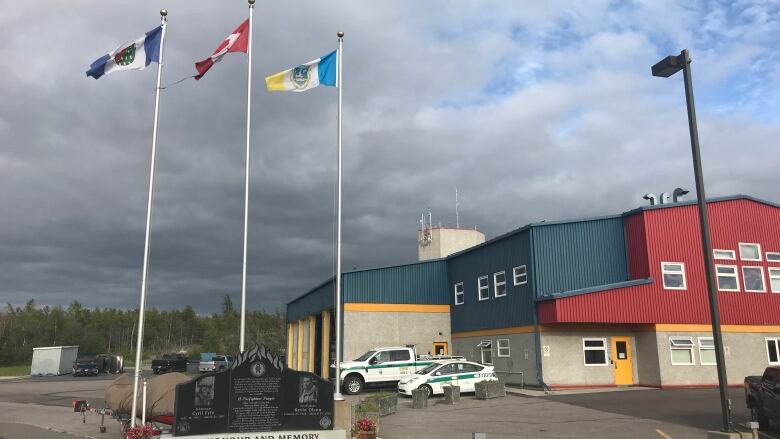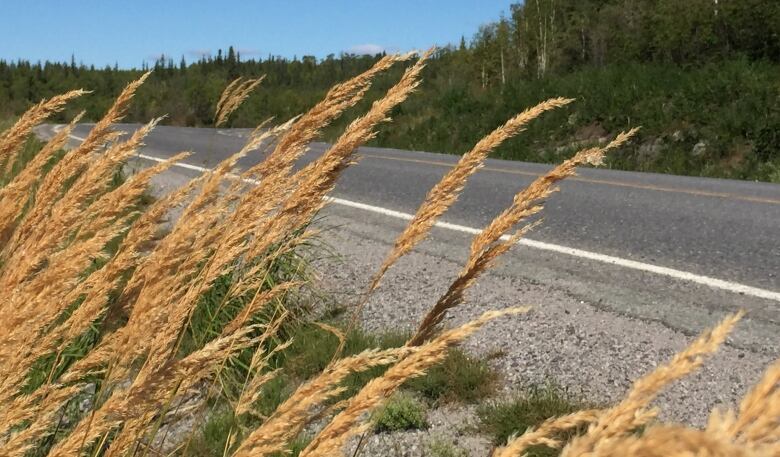Should the Yellowknife fire department still respond to fires along the Ingraham Trail?
No, say city staff and Niels Konge; maybe, say others

The City of Yellowknife is proposing to stop sending staff to fight fires up the Ingraham Trail, outside of city limits, starting April 1.
In a governance and priorities committee meeting Monday, city staff presented a new "level of service" plan that would drop fire calls up the trail, except in cases that pose a wildfire threat.
Acting fire chief Craig MacLean estimated the fire department handles about one fire per year along the trail.
City staff did not present a specific breakdown of the cost savings of discontinuing the service. Public safety director Eric Bussey explained that the issue is not just one of cost, but of risk.
The risk is that city staff and equipment paid for by city-dwelling taxpayers could wind up in use when it's needed to fight fires in town.
Yellowknife North MLA Rylund Johnson addressed committee members on behalf of constituents who live along the trail.
"I've never had so many constituents reach out on one issue," he said.
Those constituents, Johnsonsaid, understand that the fire department may not arrive immediately, and may not arrive in time to save buildings. But, he said, dropping the service will have an immediate effect on the insurance bills of any Ingraham Trail dwellers an effect he guessed would be greater than what the city would save.
I do not understand how this any which way, shape or form is a city issue.- Coun. Niels Konge
The Yellowknife fire department currently responds to fires along the trail on a fee-for-service basis. People who call for fire help will face a flat fee of $1,500 plus $2 per kilometre travelled, plus $500 for the first two hours and $200 per hour after that. (City dwellers are also billed for firefighting service, minus the $1,500 flat fee and the kilometre rate, and to a maximum of $4,500.)
Under the new "level of service," the fire department would continue to tackle fires in Dettah. It wouldalso continue to handle ambulance and rescue calls outside of city limits.
Not a 'city issue,' says councillor
Coun. Niels Konge supported cutting the service,saying he's heard from many trail dwellers that they moved out specifically because they don't want to pay taxes to the city.
"I do not understand how this any which way, shape or form is a city issue," he said.
Konge offered a back-of-the-envelope calculation suggesting that a visit from a city fire truck actually costs $35,000 to $40,000 costs that are borne by those who do pay municipal taxes. "The taxpayers of Yellowknife are subsidizing this service to a huge, huge extent."
"This is a [territorial government] problem," Konge said. "These are your constituents. I wish you luck in figuring it out."

MLA Johnson said he did not believe the city should pay for the service. Rather, he suggested the territorial government should come to an agreement to cover the cost of the service, which the city is best positioned to provide.
"People on the Ingraham Trail pay their taxes and fees to the [N.W.T. government] and get very little service in return," he said.
Johnsonnoted that there are around 100 families and many more cabin users along the trail more people than in some small N.W.T. communities.
"In Alberta or B.C., you'd be in a county or rural district," he said. "You'd have some sort of democratic representation, not just your MLA."
Coun. Shauna Morgan said she looked forward to a fuller cost analysis that showed the precise impact the cut would have. She suggested the city continue to offer the service but seek more support from the territorial government.
Mayor Rebecca Alty and Coun. Steve Payne both said they support ending the service, but Alty said she looked forward to hearing from residents before the matter comes to a vote on Sept. 14.












_(720p).jpg)


 OFFICIAL HD MUSIC VIDEO.jpg)
.jpg)



























































































